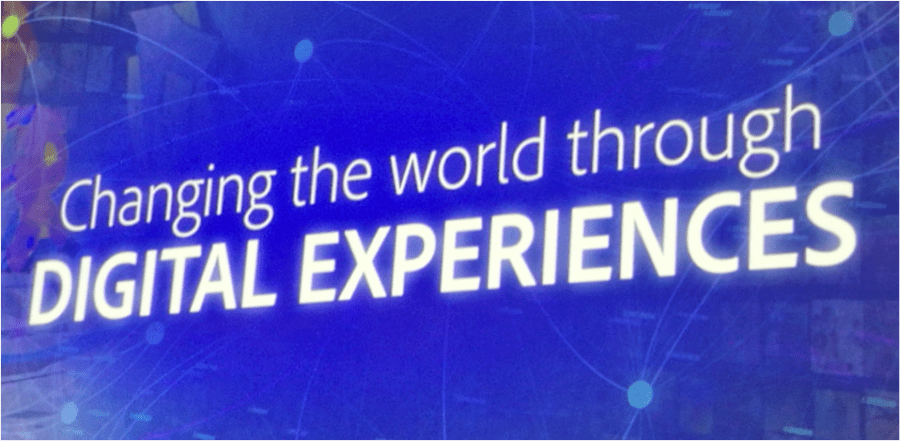 I attended the interview with Nick Drake, Senior Vice President, Direct to Consumer at T-Mobile and Otto Rosenberger who serves as CMO at the Hostelworld Group at the Adobe Summit. The key take away of the entire session was that customer experience is the beginning and the core of digital transformations – it is where it all begins.
I attended the interview with Nick Drake, Senior Vice President, Direct to Consumer at T-Mobile and Otto Rosenberger who serves as CMO at the Hostelworld Group at the Adobe Summit. The key take away of the entire session was that customer experience is the beginning and the core of digital transformations – it is where it all begins.
T-Mobile and Hostelworld are completely different companies, but what kind of connects them is the fact that they both focused on customer experience when transforming their companies.
So why is customer experience the key to it all? Because it links organizations to customers at an emotional and physiological level.
The story of Hostelworld
Hostelworld is now a leading hostel booking platform. Three years ago, it was set up as just a booking engine, as a transactional business. Today, the company accompanies their customers throughout the entire trip. Hostelworld operates globally, with most of the customers based in North America, whereas 30% to 35% come from Europe. What fueled their growth? They went beyond booking, and helped their customers out in each and every way so that they get the best offers around, and can enjoy invitations and group tours during the trip. Almost 50% of their bookers use the app when they are travelling, and 90% of these people say the app made their trip so much more fun.
So what did Hostelworld do differently? They tapped into the emotions of their customers, and offered them the experiences they were looking for. Yes, a lot of internal changes were required, but it was worth it. They had to work on their business goals, operating principles, and the team they had. Additionally, they had to divide the budget appropriately between marketing and tech.
T-Mobile’s Journey
Drake shared the journey of T-Mobile. When Drake joined T-Mobile, the company was doing well in terms of customer acquisition, but they weren’t living up to its potential. Only 35% of all acquisitions were made on the digital channel, and so Drake’s task was to raise the bar.
T-Mobile had to radically transform their business, giving the IT team enough breathing space to platform their legacy. They decided to go forward with multi technology platforms, taking a radically different approach to customer experience, but they had to bring about a lot of changes. They understood their audience, and figured out ways to interact with them over various channels, while reinventing and customizing their product offerings.
T-Mobile has seen surprising results, and doubled their subscriber base since they stepped into the race. They completely redesigned themselves using the Adobe Marketing Cloud. Using personalized content, they reduced clicks by 60%, and drove higher engagement levels. From a technical perspective, they redeveloped their mobile app in order to provide a better service. A new feature called asynchronous messaging was introduced, which allows users to strike up a conversation with customer services.
Drake advised that it is important to think about what kind of business you are in, and then invest in both the current day and future. Plus, there should be a balance between the commitment made to the shareholders and then ensuring that commitments RE met for the next few years.
So what does this boil down to in the end?
Experiences impact the way in which people feel and respond. But businesses must provide rich and immersive experiences that go deeper than redesigning and managing interactions. Experience is more about building, and then nurturing an emotional connection with your audience – so that they completely connect to your brand.
Your business may not have begun to transform digitally, but sooner or later, you’ll have to take the step. And if you don’t, you’ll be eaten up by the competition- that is what it gets down to.
Stay updated with what’s going in the digital world with Ronald van Loon, Top Ten Global Influencer for Big Data, the Internet of Things (IoT), and Predictive Analytics on LinkedIn and Twitter.

